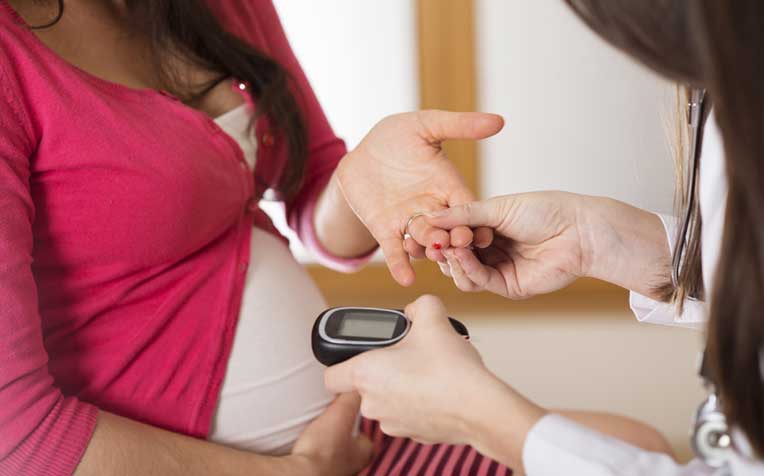
Detect gestational diabetes mellitus early to help reduce the risks to the pregnancy.
Who should test for gestational diabetes mellitus?
Although the risk of
gestational diabetes mellitus (GDM) is higher in certain groups of women, it can happen to any woman in her pregnancy. In Singapore, all pregnant women will be offered screening for GDM with an oral glucose tolerance test between 24 and 28 weeks of pregnancy.
If you have had GDM before, have glucose in the urine, or symptoms suggestive of diabetes, the oral glucose tolerance test will be performed earlier in pregnancy and repeated again at 24 and 28 weeks if the first test was normal.
Detection of GDM is important so that appropriate treatment can be given to reduce the risks to the pregnancy, say doctors from the Obstetrics & Gynaecology at KK Women's and Children's Hospital (KKH), a member of the SingHealth group.
How is gestational diabetes mellitus diagnosed?
An oral glucose tolerance test (OGTT) to diagnose GDM requires:
Fasting overnight (not eating or drinking anything apart from water)
Blood test in the morning, followed by a 75 g glucose drink
Repeat blood glucose tests at 1 hour and 2 hours after the glucose drink
Are there any risks or side effects from the OGTT?
The standard glucose drink is sweet and may cause some to feel nauseated. In rare cases, it may trigger vomiting. If this happens, we will need to reschedule the test to be done on another day if you are agreeable.
Why should you do the OGTT?
All pregnant women are strongly encouraged to undergo the test as GDM is a common condition in pregnancy, and there are potential risks to the pregnancy if not detected and treated promptly.
What happens if the test shows that you have GDM?
When you have GDM, you will be under the care of a specialist healthcare team comprising of obstetricians, endocrinologists, specialised nurses, and dietitians. A blood test (HbA1c) that assesses the average blood glucose level over a 3-month period will be performed.
You will be given an appointment to attend a day assessment session at SingHealth hospitals to learn to use a glucometer to monitor your sugar levels at different time points within the day (pre-meals, 2 hours after meals and at bedtime), as it is important to ensure satisfactory glucose control during your pregnancy. You will also be referred to a dietitian for dietary advice.
Ref: O17
Contributed by















 Get it on Google Play
Get it on Google Play